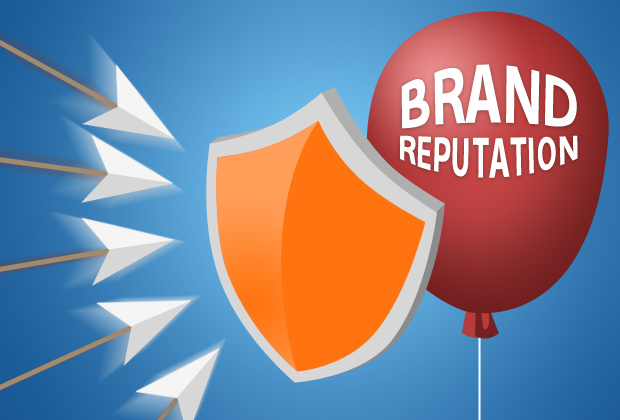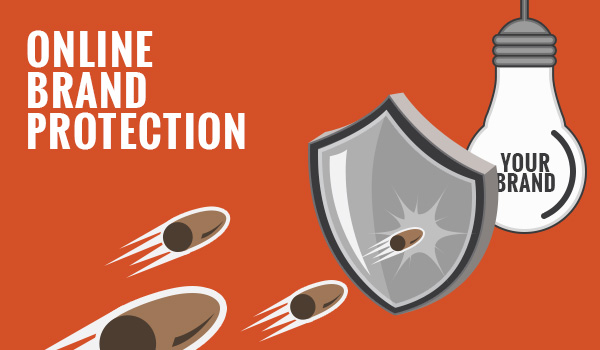In today’s digital age, where information spreads rapidly and opinions can make or break a business, protecting your brand reputation is more critical than ever. Brand reputation protection involves a proactive approach to managing and safeguarding the perception of your brand in the eyes of consumers, stakeholders, and the public.
Understanding Brand Reputation Protection

Brand reputation refers to how a brand is perceived by others. It encompasses various factors, including the quality of products or services, customer experiences, corporate social responsibility initiatives, and overall brand image. A positive reputation can enhance customer loyalty, attract new business, and strengthen partnerships, while a negative reputation can lead to loss of trust, decreased sales, and long-term damage to the brand’s credibility.
Common Threats to Brand Reputation
Several factors pose threats to brand reputation, including negative reviews and feedback, social media crises, and malicious attacks by competitors. Negative online content can quickly escalate, damaging the brand’s reputation and eroding consumer trust. Therefore, businesses must be vigilant in monitoring online conversations and addressing issues promptly to prevent them from spiraling out of control.
Strategies for Brand Reputation Protection
To effectively protect their brand reputation, businesses must adopt proactive strategies, including:
- Proactive Monitoring: Regularly monitor online mentions, reviews, and social media conversations to identify potential reputation threats before they escalate.
- Effective Communication: Maintain open and transparent communication with customers, stakeholders, and the media to address concerns and build trust.
- Crisis Management Planning: Develop a comprehensive crisis management plan outlining protocols for responding to reputation crises swiftly and effectively.
Utilizing Online Tools and Technologies
Advancements in technology have made it easier for businesses to monitor and manage their brand reputation online. Reputation management software and social media monitoring tools enable businesses to track mentions, analyze sentiment, and respond to feedback in real-time, empowering them to take proactive measures to protect their brand image.
Case Studies of Successful Brand Reputation Protection
Numerous brands have successfully navigated reputation challenges by implementing robust brand protection strategies. Examples include companies that have turned negative customer experiences into positive outcomes by addressing issues promptly and transparently, thereby earning back consumer trust and loyalty.
The Role of SEO in Brand Reputation Protection
Search engine optimization (SEO) plays a crucial role in shaping a brand’s online reputation. By optimizing content to reflect positive brand messaging and addressing negative search results through strategic SEO tactics, businesses can influence how their brand is perceived by online audiences.
Building Trust and Credibility
Transparency, consistency, and authenticity are key elements in building trust and credibility with consumers. By delivering on promises, engaging authentically with stakeholders, and demonstrating a commitment to ethical business practices, brands can cultivate a positive reputation that resonates with their target audience.
Legal Considerations in Brand Reputation Protection
Businesses must also be mindful of legal considerations when protecting their brand reputation. Defamation and libel laws govern what can be said or published about a brand, while intellectual property laws protect trademarks, logos, and other assets from infringement.
Measuring Brand Reputation
Measuring brand reputation involves tracking key performance indicators (KPIs) such as brand sentiment, customer satisfaction levels, and online engagement metrics. By regularly monitoring these metrics, businesses can assess the effectiveness of their brand protection efforts and make informed decisions to mitigate reputation risks.
Recovering from Reputation Damage
In the event of reputation damage, businesses must take proactive steps to rebuild trust and credibility with their stakeholders. Also, this may involve issuing public apologies, implementing corrective actions, and demonstrating a genuine commitment to addressing underlying issues.
Long-Term Brand Reputation Management Strategies
Brand reputation management is an ongoing process that requires continuous improvement and adaptation to changing market dynamics. By staying vigilant, listening to feedback, and evolving with consumer expectations, businesses can safeguard their brand reputation and maintain a competitive edge in the market.
The Future of Brand Reputation Protection
As technology continues to evolve and consumer behavior shifts, the landscape of brand reputation protection will also change. Emerging trends such as artificial intelligence, blockchain technology, and data privacy regulations will present both challenges and opportunities for brands to innovate and differentiate themselves in the market.
Case Studies
Brand reputation protection isn’t just about putting out fires when they start; it’s also about leveraging opportunities to build and enhance a brand’s image. Many companies have turned what could have been reputation disasters into record-breaking successes through effective brand protection strategies. Below are some notable case studies that showcase the power of brand reputation management, along with quotes from industry influencers.
Case Study 1: Starbucks and the Power of Transparency
In 2018, Starbucks faced a reputation crisis when two black men were arrested in a Philadelphia store for allegedly trespassing. The incident quickly went viral on social media, sparking outrage and calls for boycotts. Rather than ignore the situation, Starbucks took immediate action. The company publicly apologized, closed 8,000 stores for anti-bias training, and created a new company-wide policy for handling similar situations.
Result:
Starbucks turned a potentially damaging incident into an opportunity to show leadership on social justice and corporate responsibility. Not only did this enhance customer loyalty, but it also contributed to a 4% increase in sales in the following quarter, setting a new record for the brand’s quarterly performance.
Influencer Quote:
“Starbucks’ response was a masterclass in reputation management. They didn’t shy away from the controversy; they leaned into it with transparency, showing that they truly care about social responsibility. It was a win for both their reputation and their bottom line.” – Amanda Ma, Brand Strategist
Case Study 2: Domino’s Pizza and the Social Media Crisis
In 2009, two employees of Domino’s Pizza filmed themselves doing unsanitary things to the food in the kitchen and posted the video on YouTube. The video went viral, and the brand was immediately hit with backlash. However, Domino’s responded quickly by addressing the incident head-on, using social media to communicate its new commitment to quality and hygiene.
Result:
Despite the initial hit to their reputation, Domino’s embraced the crisis, revamped their menu, and launched a highly successful advertising campaign that acknowledged their mistakes. The result was a 14.3% increase in same-store sales in 2010, with Domino’s being recognized as one of the most improved brands in the industry.
Influencer Quote:
“Domino’s turned a viral crisis into an opportunity for growth. Their transparency and willingness to admit mistakes, combined with their immediate action, not only salvaged their reputation but helped them innovate and grow even stronger.” – Brian Solis, Digital Analyst and Author
Case Study 3: Johnson & Johnson’s Tylenol Crisis
One of the most famous brand reputation case studies involves Johnson & Johnson and the Tylenol poisoning crisis in 1982. After several people died from cyanide-laced Tylenol capsules, the company’s immediate response was to recall all Tylenol products from store shelves, amounting to $100 million in lost sales. They also introduced tamper-proof packaging, which became the industry standard.
Result:
Despite the initial loss, Johnson & Johnson’s swift and transparent response restored consumer trust. The brand recovered from this crisis and regained market leadership in the pain relief category. The company’s commitment to consumer safety helped turn a potential brand-destroying event into a reputation-building opportunity.
Influencer Quote:
“Johnson & Johnson’s response to the Tylenol crisis is still regarded as one of the best examples of crisis management. It wasn’t just about fixing the problem—it was about reinforcing their commitment to consumer safety.” – Howard Schultz, Former CEO of Starbucks
Case Study 4: Tesla and Elon Musk’s Controversial Tweets
Tesla, led by Elon Musk, has had several reputation highs and lows due to Musk’s unfiltered tweets. A particularly controversial moment occurred in 2018 when Musk tweeted that he was considering taking Tesla private at $420 per share, a statement that led to an SEC investigation and a settlement. Despite the regulatory scrutiny, Tesla’s brand continued to grow, in part due to Musk’s strong following and reputation for innovation.
Result:
While Musk’s actions led to a temporary dip in stock price and legal issues, Tesla’s commitment to innovation, sustainability, and customer satisfaction allowed the company to maintain a strong brand reputation. The company’s stock price soared by over 700% in the years following the incident, setting new records in both the automotive and tech industries.
Influencer Quote:
“Elon Musk is a brand unto himself. While his actions sometimes create chaos, his reputation for innovation and boldness carries Tesla forward. His ability to weather the storm and stay true to his vision is a testament to the power of reputation management in the digital age.” – Gary Vaynerchuk, Entrepreneur and Author
Conclusion
In conclusion, brand reputation protection is a vital aspect of business strategy in today’s digital landscape. By understanding the factors that influence brand reputation, implementing proactive protection strategies, and leveraging technology and legal frameworks, businesses can safeguard their brand image and maintain consumer trust in the long term.
If you’re ready to take proactive steps in safeguarding your brand reputation, we invite you to request a demo from AIM Technologies. Our advanced solutions and expertise can help you effectively monitor, manage, and protect your brand reputation in the ever-evolving digital environment.
FAQs
1. What are the consequences of a negative brand reputation?
- Negative brand reputation can lead to loss of trust, decreased sales, and long-term damage to the brand’s credibility, impacting business profitability and sustainability.
2. How can businesses proactively monitor their brand reputation?
- Businesses can proactively monitor their brand reputation by using online tools and technologies to track mentions, reviews, and social media conversations, allowing them to identify potential threats early on.
3. What role does SEO play in brand reputation protection?
- SEO plays a crucial role in shaping a brand’s online reputation by influencing search results and optimizing content to reflect positive brand messaging.
4. How can businesses recover from reputation damage?
- Businesses can recover from reputation damage by taking proactive steps such as issuing public apologies, implementing corrective actions, and demonstrating a genuine commitment to addressing underlying issues.
5. What are some long-term strategies for brand reputation management?
- Long-term strategies for brand reputation management include continuous improvement efforts, staying vigilant, and evolving with consumer expectations and market dynamics.




